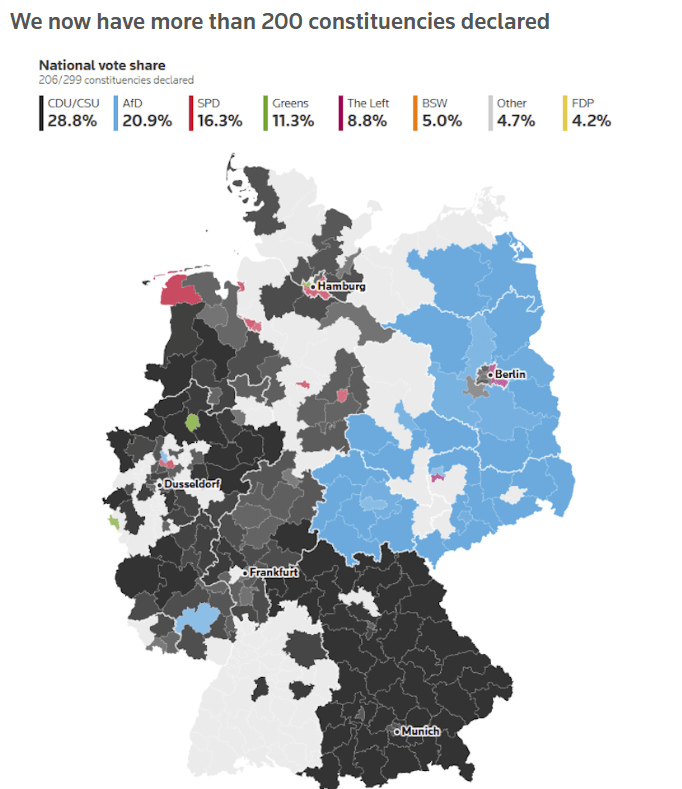Judging from early results and projections, the Conservatives led by Friedrich Merz but a coalition will be troubling.

Merz Claims Win for CDU
CNN reports Merz claims win for German conservatives as far right surges to second place
Election Highlights
- Friedrich Merz is likely to become the next German chancellor after his conservative CDU party topped the vote in elections, exit polls project. The stuttering economy and immigration were major voter concerns.
- The far-right Alternative for Germany (AfD) almost doubled its vote share and surged into second place. But it is likely to be frozen out of power as other parties are refusing to work with it.
- SPD, the party of current Chancellor Olaf Scholz, slumped to third place, with just 16% of the vote – its worst showing in decades.
- The election came against a backdrop of the Trump administration transforming historic security ties with Europe and moving ahead with peace talks on Ukraine.
- Whoever wins, coalition talks are a near-certainty. Single parties rarely win majorities in German elections so Merz will have to open talks with other parties on forming a government.
Live Updates

It will be harder to form a coalition the more fringe parties hang on. Die Linke will survive and BSW is right on 5.0 Percent.
Reuters has live updates noting Conservatives win but refuse talks with second placed far-right AfD
The leader of Germany’s pro-business Free Democrats (FDP), Christian Lindner, said he will leave active politics.
“The German election brought defeat for the FDP, but hopefully a new start for Germany. This is what I fought for. Now I will leave active politics, with just one feeling: gratitude for almost 25 intense and challenging years full of creation and debate.”
The FDP look set to miss the 5% threshold needed to win parliamentary seats.
Linder served as finance minister during Olaf Scholz’s awkward three-way coalition. The FDP effectively triggered the snap election by abandoning the coalition in a dispute over government spending and the budget.
Holger Schmieding, chief economist at Berenberg, said whether the next government would be a coalition of two or three parties will not make a huge difference.
“A three-party alliance would be more difficult to handle, see the old three party ‘traffic light alliance’ which eventually foundered.”
“But in terms of policies, the difference between a coalition of two or three mainstream parties would not be huge. In any case, it would be an alliance of centre-right and centre-left forces.”
Read more reaction from analysts and economists here.